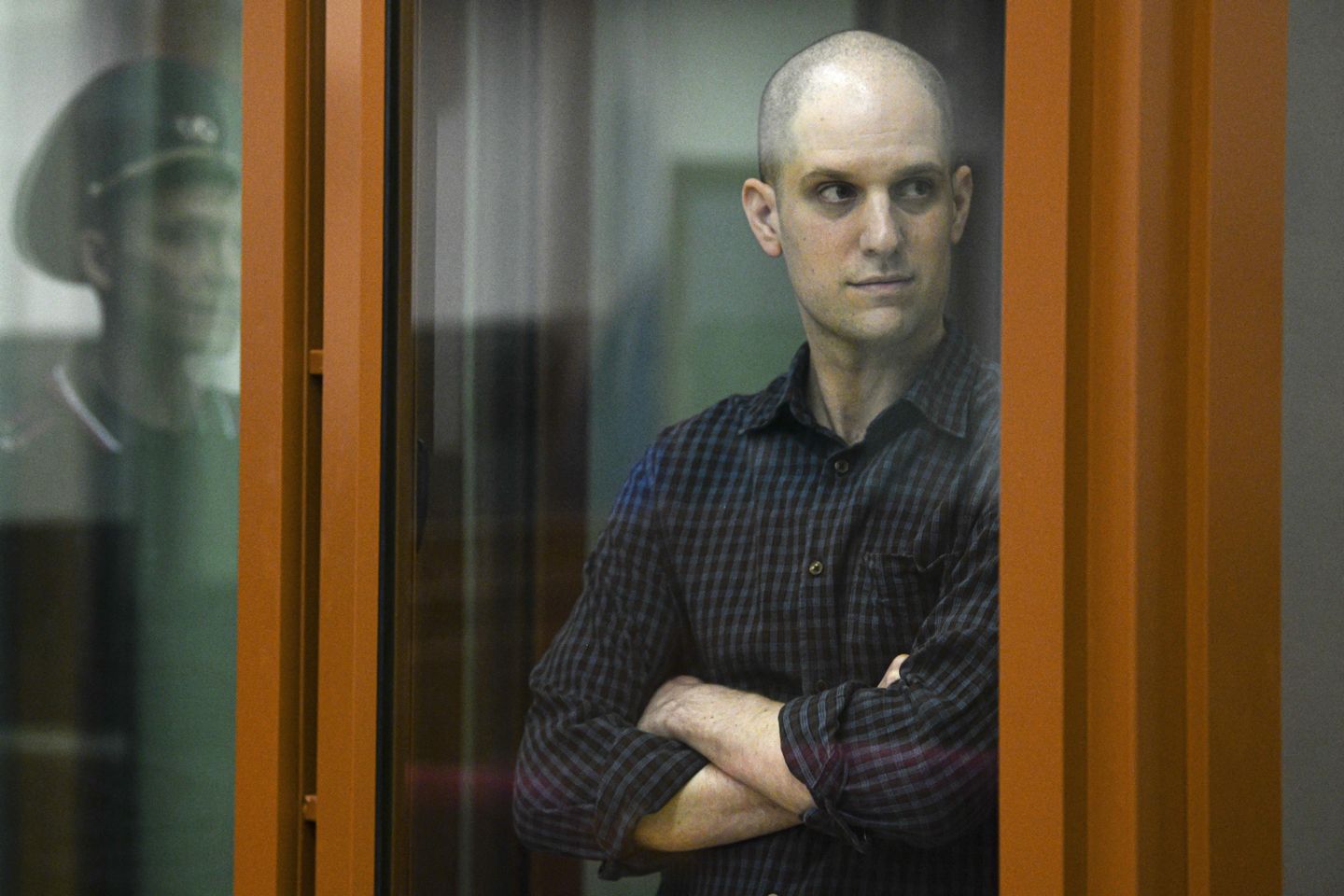The trial of Evan Gershkovich, a reporter for the Wall Street Journal, has captured the attention of the international community as Russian prosecutors seek a prison sentence of 18 years on espionage charges that he, his employer, and the U.S. government vehemently deny. The case has raised concerns about press freedom and the treatment of journalists in Russia.
Gershkovich, a U.S. citizen who has been reporting from Moscow for several years, was arrested in December 2023 on charges of espionage. The Russian authorities claim that he was working as a spy for the U.S. government, passing sensitive information to American intelligence agencies. Gershkovich and his employer, the Wall Street Journal, have denied the charges, stating that he was simply doing his job as a journalist.
The trial, which has been closely watched by media rights groups and Western governments, has been marked by accusations of a lack of transparency and due process. Gershkovich’s lawyer has alleged that key evidence has been withheld from the defense, and that the trial has been conducted in a manner that raises questions about its fairness.
The U.S. government has also condemned the charges against Gershkovich, calling them “baseless” and urging the Russian authorities to release him immediately. Secretary of State Antony Blinken has raised the case with his Russian counterpart, Sergey Lavrov, and has called for Gershkovich to be given a fair trial.
The Wall Street Journal has also been vocal in its support for Gershkovich, stating that he is a dedicated and professional journalist who was simply doing his job. The newspaper has called the charges against him “absurd” and has demanded his immediate release.
The case has sparked renewed concerns about press freedom in Russia, where journalists face increasing pressure and harassment from the authorities. Several journalists have been arrested and imprisoned in recent years, leading to accusations that the Russian government is cracking down on independent media.
The trial of Gershkovich comes at a time of strained relations between Russia and the West, with tensions running high over a range of issues, including the conflict in Ukraine, cyber attacks, and human rights abuses. The case has the potential to further escalate tensions between the two sides, as the U.S. and its allies continue to push for Gershkovich’s release.
The trial has also raised questions about the treatment of journalists in Russia, with many observers expressing concerns about the lack of due process and the use of espionage charges to silence dissenting voices. Human rights groups have called for Gershkovich’s release and have condemned the charges against him as an attack on press freedom.
As the trial continues, Gershkovich remains in custody, awaiting the verdict that will determine his fate. The case has become a symbol of the challenges facing journalists in Russia and the importance of defending press freedom around the world.
In the courtroom, Gershkovich maintains his innocence, insisting that he is a journalist, not a spy. His supporters continue to rally behind him, calling for justice and demanding his release. The outcome of the trial remains uncertain, but one thing is clear: the case of Evan Gershkovich has become a test of Russia’s commitment to press freedom and the rule of law.









